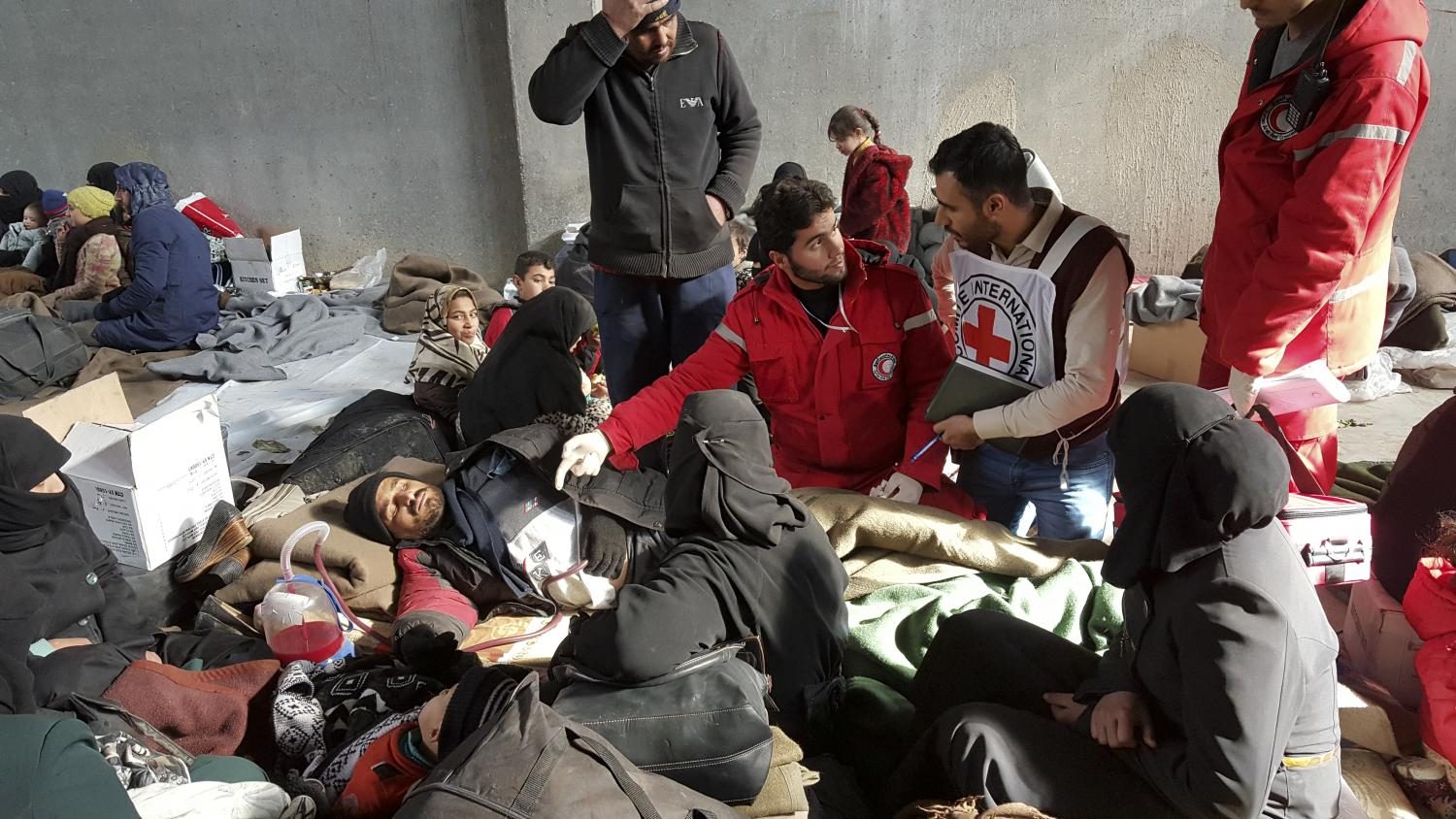International committee proves helpful to those in need
International Committee of the Red Cross works hard for those in need around the world
ICRC and Syrian Arab Red Crescent workers assist victims and assess their humanitarian needs Southeast of the city of Aleppo, Syria.
May 17, 2017
Three International Committee of the Red Cross (ICRC) humanitarian workers were on their way back from a mission trip when they were captured and reported missing in April of 2016. After about a year later, they have still not been found.
The ICRC humanitarian workers and aides continue to put their lives at risk on a daily basis to protect civilians living in countries undergoing war. The Red Cross acts as a guardian to the humanitarian law, which is a set of rules limiting the effects of war.
There is an estimated number of 14,000 staff in over 80 countries assisting families affected by violence and war in their countries, according to the ICRC website.
“The ICRC helps tens of thousands of people move from several villages to different areas,” communications manager Marie-Claire Feghali said.
The committee addresses sexual violence, helps families stay in contact, helps detainees, and makes sure living conditions are survivable in countries affected by armed conflict.
Many rebel groups in countries such as Columbia, South Sudan and Syria often kidnap citizens treating them as if they are nothing, says Feghali. The citizens face beatings and sexual assault and later on, death.
Humanitarian workers help enforce the humanitarian law to ensure the safety of innocent civilians by displacement to safer areas.
During war, families are often split apart. Many citizens make attempts to flee their country so quickly that they lose track of their friends and family.
The ICRC “helps restore family links” by connecting relatives and communicating with the authorities to inform family members, according to the ICRC family links website.
In countries undergoing war, arrests are a lot more common for much more imprecise reasons
According the the Red Cross website, aides and humanitarian workers help to prevent torture, maintain family contacts, and improve conditions of the primases.
“The reasons we visit prisons is to see if they are treated well, that living conditions are okay, that they don’t disappear within the system, and that they are in contact with their families,” Feghali said.
Water pipes and electrical lines are often destroyed during war. This cuts the use of clean water and access to many other necessities to complete everyday tasks.
Red Cross workers replace and fix these necessities to make sure conditions are survivable.
The ICRC helps to make sure food, water and shelter are provided. The Red Cross helps to pursue an end to the dark tunnel for these families.
“They don’t only work in distribution of food, items and other things. They also work in prevention,” Feghali said.
For 154 years, the Red Cross has helped thousands of families find peace.
“Our main objective is to do no harm, and then look at the interests of the victims first,” Feghali said.



